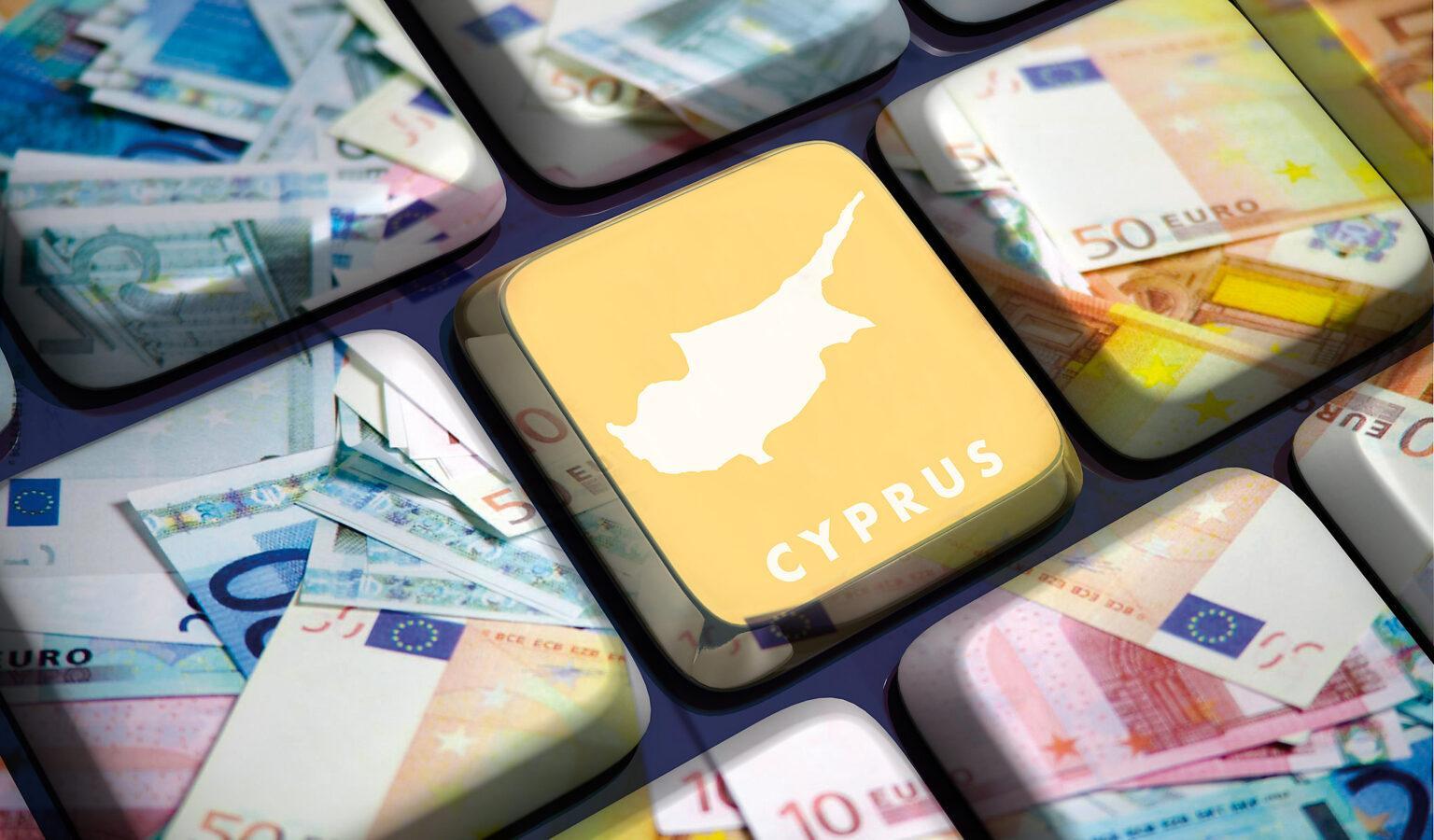Cyprus is an ideal place to do business in Europe. The island nation's main advantage is its attractive tax regime, which allows foreign entrepreneurs to minimise their tax liabilities. For example, Cyprus has the lowest corporate tax rate in Europe - only 12.5%. However, this can be reduced to 0% under certain conditions. This article will tell you how.
Who is a tax resident in Cyprus?
First, let's understand who is considered a tax resident of Cyprus. It's quite simple. An individual is considered to be a resident of Cyprus if they meet the conditions of either: 183 days or 60 days. The 183 day rule means that a person is present in Cyprus for more than 183 days in a calendar year. The 60 day rule in turn requires five conditions to be met:
- The individual does not reside outside Cyprus for more than 183 days in a year.
- Is not a tax resident of another state.
- Spends at least 60 days a year in Cyprus.
- Is employed in Cyprus and/or holds a managerial position in a company that is tax resident in Cyprus.
- Is the owner or tenant of a residential property in Cyprus.
For a legal entity to become a tax resident of the island state, it must be established in the areas controlled by the Republic of Cyprus. An individual who is a tax resident of Cyprus pays tax on income derived from sources within and outside the Republic. If an individual is not a tax resident of Cyprus, he or she pays tax only on domestic income.
What is the correct way of counting days?
For the 183 and 60 day rules, the days counted are
- The day of arrival in Cyprus;
- the day of arrival in Cyprus, even if you left on the same day.
Not counted are:
- The day of departure from the island;
- the day of departure, even if you return to Cyprus on the same day.
You can confirm the days with a certified copy of your passport with entry stamps, boarding passes and e-tickets.
Benefits of Cyprus tax residency
Cyprus tax residency has a number of advantages for individuals and companies, including
- Tax benefits: Cyprus offers one of the lowest income tax rates in the EU, as well as tax incentives on investments, inheritances, foreign securities gains and other income.
- Double Taxation: Cyprus has many bilateral tax treaties which provide protection against double taxation of income earned on the island and abroad.
- Security and stability: Cyprus is a stable country with progressive legislation and is a member of the EU and the UN.
- Resident opportunities: Tax residents can benefit from a wide range of banking and financial services, including asset management, investment and lending.
- Inheritance: Inheritance of assets domiciled in the country is not taxed.
- Reduced tax burden: With proper structuring of business and financial assets, residents can significantly reduce their tax burden.
Types of residents in Cyprus
All tax residents in Cyprus are divided into two categories: domiciliary and non-domiciliary.
Domiciliary residents: are those who have lived in Cyprus for more than 17 of the last 20 years. This status is granted to those who:
- were born in Cyprus and have been granted the status of permanent resident by right of birth;
- have chosen Cyprus as their place of residence and have purchased property in the country.
Non-domicile residents :
- Individuals who have chosen Cyprus as their place of residence, but who have not been tax resident in Cyprus for at least the last 20 years preceding the current tax year.
- Individuals who have not been tax resident in Cyprus for 20 consecutive years prior to the introduction of the law on non-resident status (before 16 July 2015). However, provided that these individuals have not been tax resident in Cyprus for 17 of the last 20 years prior to the tax year in question.
What does non-domiciliary status in Cyprus mean?
Non-domicile status was introduced in Cyprus in 2015. Non-domicile is a special tax regime that allows individuals who reside in Cyprus for at least 60 days in each tax year to effectively reduce their tax liability. Under the Non-Domicile concept, foreigners who choose to make Cyprus their personal tax residence can benefit from tax incentives and advantages for 17 years after moving to the island and obtaining tax residency status.
Non-domicile in Cyprus is established when an individual is a tax resident of another country but has property, business or other connections with Cyprus. In this case, income earned in Cyprus is taxable in Cyprus and income earned outside Cyprus is not taxed by the Cypriot tax authorities.
It is important to note that the country has a double taxation system which allows for the avoidance of double taxation of income received by individuals in Cyprus and abroad. Double taxation treaties have been concluded with more than 67 countries.
The concept of non-domiciliary tax resident was introduced by the Cypriot government to make it attractive for wealthy foreign individuals to invest in the island's economy. By acquiring this status, you are exempt from paying tax on passive income, meaning that you can receive dividends and interest income tax free.
Non-domicile in Cyprus is particularly attractive for
- Employees of companies with foreign participation (investments)
- High-net-worth individuals wishing to reduce their tax burden
- Owners of medium and large companies.

How to optimise taxes in Cyprus with non-domicile status?
Persons who qualify for the non-domicile regime are exempt from taxation in Cyprus on the following sources of income:
- Interest;
- dividends received from a company incorporated anywhere in the world (in addition, dividend income is exempt from income tax). Therefore, the tax payable by a non-dom resident of Cyprus on dividend income is nil);
- Capital gains (other than capital gains arising from the sale of immovable property in Cyprus);
- Income derived from the sale of shares, bonds and other similar financial sources (including options and borrowings);
- No Special Tax Contribution for Defence Purposes (SDC) - it is levied on passive income: dividends, interest on deposits, rental of accommodation. Non-domiciled individuals pay 17% tax on dividends, 30% on interest on bank deposits and 3.75% on rental income.
Non-domiciled tax residents of Cyprus have the option of not residing permanently on the island, but reducing the cost of business taxation. If you become a tax resident, you will only pay general income tax with a progressive rate - the first 19.5 thousand euros of income per year is not taxable, then the rate is 20%, which increases by 5% for each additional amount. Once you reach 60,000 euros per year, the rate is fixed at 35% and all subsequent income is taxed at this rate.

How to obtain non-domicile status in Cyprus by registering a legal entity?
It is possible to become non-domiciled by registering a legal entity in Cyprus by following the steps below:
- Registering a Cyprus company.
- Changing the status of the company.
- Hiring directors.
- Obtaining a residence permit.
- Filing a tax return.
- Non-Dom Application.
At the first stage, it is necessary to fulfil the conditions imposed on companies to be registered in Cyprus. The state does not set minimum requirements for share capital, allows the number of shareholders from 1 person, a legal entity must have at least one director. Legal entities and natural persons may be directors, similar to a company secretary. Note that a director can also be a secretary. The next requirement is to have a registered office within the Cypriot jurisdiction to receive and process all notices and correspondence.
In relation to the office, the following conditions must be met in Cyprus:
1. execute the lease agreement and the necessary documents;
2. be certified by a notary and pay stamp duty to the Inland Revenue (the amount depends on the rent and the term of the lease);
- No stamp duty will be charged on contracts between €1,000 and €5,000.
- for the value of the contract from 5 to 170 thousand euros, the stamp duty is 15%.
- for the value of the contract exceeding 170 thousand euros, the stamp duty is 0.2%*.
* with a maximum payable capital of 20 thousand euros per signed contract.
3. pay a deposit + 1 month's rent from the company's bank account
4. sign a contract for the supply of electricity and water.

It is mandatory to register a company in Cyprus in order to obtain 4 main documents: Certificate of Incorporation, Certificate of Directors and Secretary, Certificate of Shareholders, Certificate of Registered Office.
The next step is to change the status of the legal entity to a company with foreign participation (foreign investment), which allows you to obtain a work permit with the right of temporary residence for the directors of the company and other key personnel.
Once the documents authorising the official occupation of a certain position in a Cyprus company with foreign capital and residence in the country have been executed, a tax application is submitted on behalf of the director (or other key personnel).
It is accompanied by:
The tenancy agreement of the applicant, certified by a notary public and a receipt for the payment of stamp duty to the Inland Revenue;
A copy of the employment contract with the stamp of the company with foreign participation;
A copy of the residence permit (issued at the same time as the work permit);
A copy of the applicant's valid passport.

How does an individual obtain non-domicile status in Cyprus?
In order to obtain non-domiciliary status in Cyprus, an individual must obtain a residence permit in the island and apply for the appropriate tax status at the Inland Revenue Department. It is possible to obtain a Cyprus residence permit if the following conditions are met:
- Proof of deposit of a minimum of €30,000 in a bank account in Cyprus, which must be pledged for at least three years. Proof must be provided that this amount has been transferred to Cyprus from abroad.
- Proof of a guaranteed annual income of at least €30,000, which must be increased by €5,000 for each dependent member of the family (spouse and children) and by €8,000 for each dependent parent or spouse's parents.

Documents required:
- 1. A copy of a valid passport.
- 2. Curriculum vitae (including academic qualifications).
- 3. A statement of deposits in a Cypriot bank with a minimum capital of €30,000 (original), applicable to the accelerated procedure.
- 4. Declaration of a stable annual income of €30,000 from sources other than employment in Cyprus (original documents and affidavits). The required annual income increases by €5,000 or €8,000 for each dependent.
- 6. Title deed or contract of sale of a built-up property in Cyprus with a minimum market value of €300,000 (original or certified copy). If the title deed has not been obtained previously, the applicant must submit a contract of sale duly stamped by the Commissioner and the Department of Land Management and proof of payment of at least 200 thousand euros.
- 7. An official statement by the applicant that he/she does not intend to work or carry on any business in Cyprus.
- 8. A health insurance policy.
- 9. Criminal record certificate (if the applicant resides abroad, the certificate must be issued by his/her country of origin and submitted with an official and certified translation into Greek).
- 10. Marriage certificate (official and certified translation).
What happens after 17 years of non-resident status?
Once the beneficiary has accumulated 17 years of tax residence in the country and continues to live in Cyprus, his status will change to that of a domiciliary and he will pay taxes like any other tax resident. But this is a long time and things can change a lot.

Read also:
- Self-employment in Cyprus: pros, cons and how to get started?
- Cyprus Weather Forecast: Current Temperature and 10-Day Average for Nicosia, Limassol, and Paphos
- Lost property sale and purchase agreement - what to do?
- Interview with Irina Eroshenko, a leading broker of the DOM Real Estate Agency
- How do I get my electricity and water deposit back in Cyprus?



